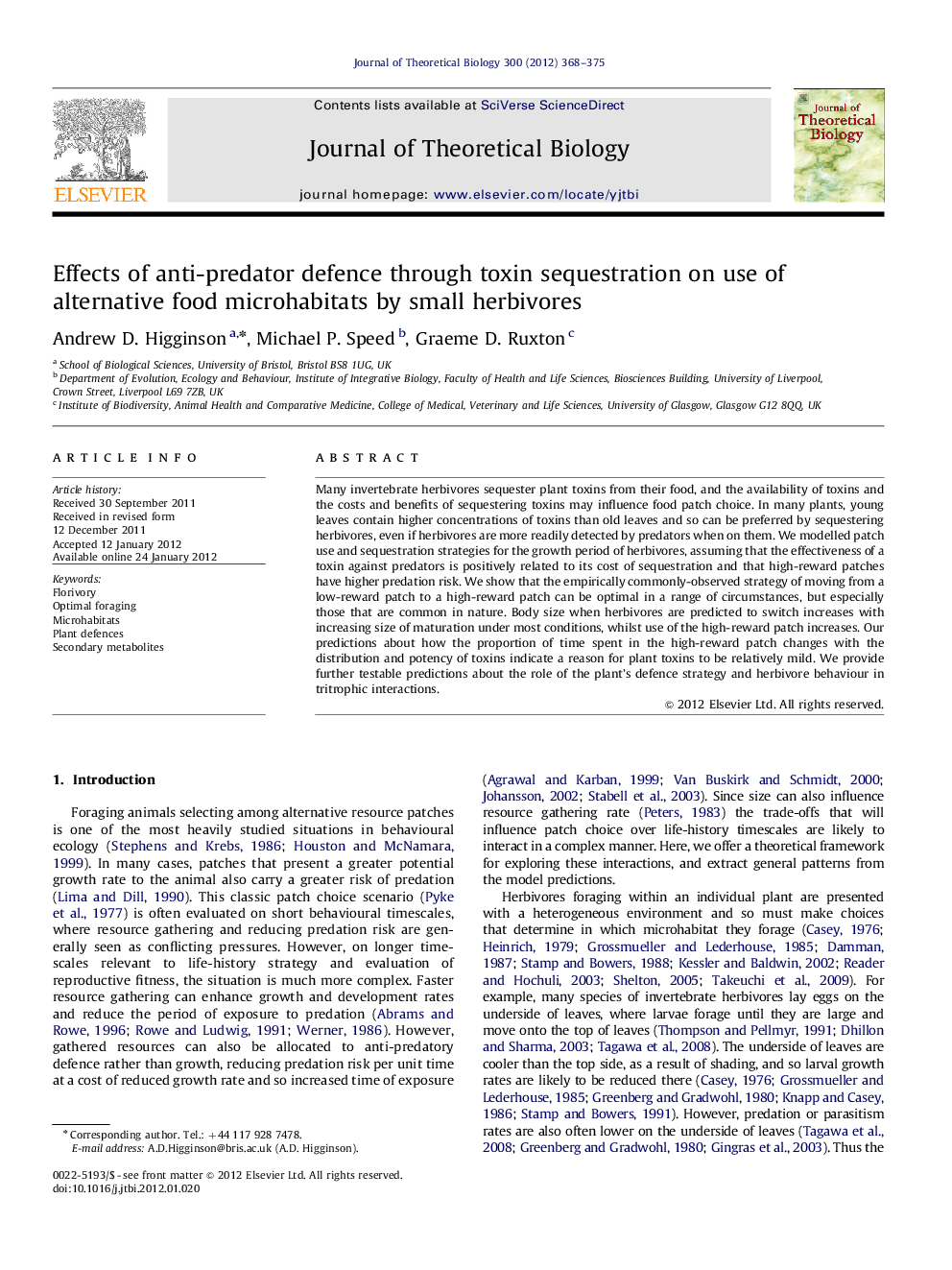| کد مقاله | کد نشریه | سال انتشار | مقاله انگلیسی | نسخه تمام متن |
|---|---|---|---|---|
| 4496781 | 1623910 | 2012 | 8 صفحه PDF | دانلود رایگان |

Many invertebrate herbivores sequester plant toxins from their food, and the availability of toxins and the costs and benefits of sequestering toxins may influence food patch choice. In many plants, young leaves contain higher concentrations of toxins than old leaves and so can be preferred by sequestering herbivores, even if herbivores are more readily detected by predators when on them. We modelled patch use and sequestration strategies for the growth period of herbivores, assuming that the effectiveness of a toxin against predators is positively related to its cost of sequestration and that high-reward patches have higher predation risk. We show that the empirically commonly-observed strategy of moving from a low-reward patch to a high-reward patch can be optimal in a range of circumstances, but especially those that are common in nature. Body size when herbivores are predicted to switch increases with increasing size of maturation under most conditions, whilst use of the high-reward patch increases. Our predictions about how the proportion of time spent in the high-reward patch changes with the distribution and potency of toxins indicate a reason for plant toxins to be relatively mild. We provide further testable predictions about the role of the plant's defence strategy and herbivore behaviour in tritrophic interactions.
► We explain why switching from a low- to high-reward patch over ontogeny is optimal.
► We provide an explanation for behaviour commonly observed in nature.
► We find a solution for the lethal defence paradox.
► We make predictions about the role of the plant's strategy and herbivore behaviour.
Journal: Journal of Theoretical Biology - Volume 300, 7 May 2012, Pages 368–375